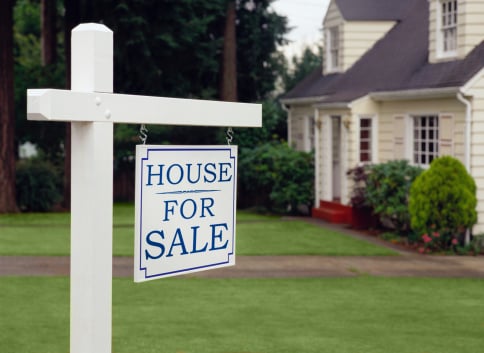Why Wall St. Can’t Get Housing Right (AIV, AVB, LEN, TOL, XHB)
December 13, 2012 by Jon C. Ogg
As things spiraled out of control, Vanity Fair wrote in 2009:
What needs to change is our expectation of what the dream promises — and our understanding of what that vague and promiscuously used term, “the American Dream,” is really supposed to mean.
Translation: The American dream of owning a home is over.
Wall St. followed along at the time, downgrading all the home builders to Neutral and often Sell. They then threw their assembled weight behind companies that built and managed apartments like Apartment Investment and Management Co. (NYSE: AIV) and Avalonbay Communities Inc. (NYSE: AVB). Basically the American public was told to “reset their expectations.” As recently as April of this year, with home prices at 10-year lows and 30-year mortgage rates near their lowest ever, economist Karl Case of the S&P/Case-Shiller index opined, “We’ve added seven million households in the last seven years and six million of those are rentals. The recent trend underscores the possibility that the American Dream is just gone.”
As in all bubbles, the truly weak are purged. True to form after a meltdown, the viable companies in the game hunker down, cut spending, expansion and employees. On March 6, 2009, residential developer and builder Lennar Corp. (NYSE: LEN) closed at $6.08, but it is now close to $37.00. Toll Brothers Inc. (NYSE: TOL), the builder of higher-end residential homes, closed the same day at $14.06. Now shares are closer to $31.00. Like clockwork, long after the sideways move and the move up, Wall St. once again began to champion the home builders.
In the past year, private equity and hedge funds have spent billions acquiring residential homes through foreclosure, short sales, bank auctions and other means. They have raised as much as $8 billion to invest, according to Jade Rahmani, an analyst at Keefe Bruyette & Woods. Warren Buffett even has said he would like to buy up as many houses as he can.
In addition, home builders for medium and high-end buyers are building and selling at levels not seen in more than five years. The appetite to own a home is not only alive and vibrant, but interest rates to buy a home are at historical lows. As we have also said, there is even a way to get better mortgage terms via the alternative mortgage from the FHA.
Buying out-of-favor home builder stocks or the SPDR S&P Homebuilders ETF (NYSEMKT: XHB) in March of 2009 when every source was screaming sell was difficult because the sentiment was dismal. That being said, it may be wise to remember that if a big Wall St. call is also on the cover of Time magazine (and it is negative), history says to go the other way.
Lee Jackson
Sponsored: Find a Qualified Financial Advisor
Finding a qualified financial advisor doesn’t have to be hard. SmartAsset’s free tool matches you with up to 3 fiduciary financial advisors in your area in 5 minutes. Each advisor has been vetted by SmartAsset and is held to a fiduciary standard to act in your best interests. If you’re ready to be matched with local advisors that can help you achieve your financial goals, get started now.